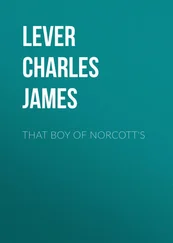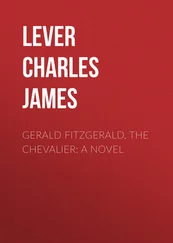Charles Lever - Tony Butler
Здесь есть возможность читать онлайн «Charles Lever - Tony Butler» — ознакомительный отрывок электронной книги совершенно бесплатно, а после прочтения отрывка купить полную версию. В некоторых случаях можно слушать аудио, скачать через торрент в формате fb2 и присутствует краткое содержание. Жанр: literature_19, foreign_antique, foreign_prose, на английском языке. Описание произведения, (предисловие) а так же отзывы посетителей доступны на портале библиотеки ЛибКат.
- Название:Tony Butler
- Автор:
- Жанр:
- Год:неизвестен
- ISBN:нет данных
- Рейтинг книги:3 / 5. Голосов: 1
-
Избранное:Добавить в избранное
- Отзывы:
-
Ваша оценка:
- 60
- 1
- 2
- 3
- 4
- 5
Tony Butler: краткое содержание, описание и аннотация
Предлагаем к чтению аннотацию, описание, краткое содержание или предисловие (зависит от того, что написал сам автор книги «Tony Butler»). Если вы не нашли необходимую информацию о книге — напишите в комментариях, мы постараемся отыскать её.
Tony Butler — читать онлайн ознакомительный отрывок
Ниже представлен текст книги, разбитый по страницам. Система сохранения места последней прочитанной страницы, позволяет с удобством читать онлайн бесплатно книгу «Tony Butler», без необходимости каждый раз заново искать на чём Вы остановились. Поставьте закладку, и сможете в любой момент перейти на страницу, на которой закончили чтение.
Интервал:
Закладка:
Mark overwhelmed his friend with assurances, very honest in the main, that they were only too happy to possess him as their guest, and felt no common pride in the fact that he could find his life there endurable. “I will own now,” says he, “that there was a considerable awe of you felt before you came; but you have lived down the fear, and become a positive favorite.”
“But who could have given such a version of me as to inspire this?”
“I am afraid I was the culprit,” said Mark. “I was rather boastful about knowing you at all, and I suppose I frightened them.”
“My dear Lyle, what a narrow escape I had of being positively odious! and I now see with what consummate courtesy my caprices have been treated, when really I never so much as suspected they had been noticed.”
There was a touch of sincerity in his accent as he spoke, that vouched for the honesty of his meaning; and Mark, as he looked at him, muttered to himself, “This is the man they call an egotist, and who is only intent on taking his turn out of all around him.”
“I think I must let you go to sleep again, Mark,” said Maitland, rising. “I am a wretched sleeper myself, and quite forget that there are happy fellows who can take their ten hours of oblivion without any help from the druggist. Without this” – and he drew a small phial from his waistcoat-pocket – “I get no rest.”
“What a bad habit!”
“Isn’t almost everything we do a bad habit? Have we ever a humor that recurs to us, that is not a bad habit? Are not the simple things which mean nothing in themselves an evil influence when they grow into requirements and make slaves of us? I suppose it was a bad habit that made me a bad sleeper, and I turn to another bad habit to correct it. The only things which are positively bad habits are those that require an effort to sustain, or will break down under us without we struggle to support them. To be morose is not one jot a worse habit than to be agreeable; for the time will come when you are indisposed to be pleasant, and the company in which you find yourself are certain to deem the humor as an offence to themselves; but there is a worse habit than this, which is to go on talking to a man whose eyes are closing with sleep. Good-night.”
Maitland said no more than the truth when he declared how happy he found himself in that quiet unmolested existence which he led at Lyle Abbey. To be free in every way, to indulge his humor to be alone or in company, to go and come as he liked, were great boons; but they were even less than the enjoyment he felt in living amongst total strangers, – persons who had never known, never heard of him, for whom he was not called on to make any effort or support any character.
No man ever felt more acutely the slavery that comes of sustaining a part before the world, and being as strange and as inexplicable as people required he should be. While a very young man, it amused him to trifle in this fashion, and to set absurd modes afloat for imitation; and he took a certain spiteful pleasure in seeing what a host of followers mere eccentricity could command. As he grew older, he wearied of this, and, to be free of it, wandered away to distant and unvisited countries, trying the old and barren experiment whether new sensations might not make a new nature. Cælum non animum mutant , says the adage; and he came back pretty much as he went, with this only difference, that he now cared only for quietness and repose. Not the contemplative repose of one who sought to reflect without disturbance, so much as the peaceful isolation that suited indolence. He fancied how he would have liked to be the son of that house, and dream away life in that wild secluded spot; but, after all, the thought was like the epicure’s notion of how contented he could be with a meal of potatoes!
As the day broke, he was roused from his light sleep by the tumult and noise of the departing guests. He arose and watched them through the half-closed jalousies. It was picturesque enough, in that crisp, fresh, frosty air, to see the groups as they gathered on the long terrace before the door; while equipages the most varied drew up, – here a family-coach with long-tailed “blacks;” there a smart britschka, with spanking grays; a tandem, too, there was for Mark’s special handling; and, conspicuous by its pile of luggage in the “well,” stood Gambier Graham’s outside jaunting-car, – a large basket of vegetables and fruit, and a hamper of lobsters, showing how such guests are propitiated, even in the hours of leave-taking.
Maitland watched Isabella in all her little attentive cares to Mrs. Maxwell, and saw, as he thought, the heir-expectant in every movement. He fancied that the shawl she carried on her arm was the old lady’s, and was almost vexed when he saw her wrap it around her own shoulders. “Well, that at least is sycophancy,” muttered he, as he saw her clutch up a little white Maltese terrier and kiss it; but, alas for his prescience! the next moment she had given the dog to a servant to carry back into the house; and so it was her own that she was parting from, and not Mrs. Maxwell’s that she was caressing!
It is strange to say that he was vexed at being disappointed. She was very pretty, very well-mannered, and very pleasing; but he longed to find that all the charm and grace about her were conventional; he wished to believe that “the whole thing,” as he called life, was a mere trick, where all cheated in proportion to their capacities. Mark had been honest enough to own that they were fortune-hunting, and Isabella certainly could not be ignorant of the stake she played for.
One by one the carriages drew up and moved away, and now Gambier Graham’s car stood before the door, alone; for the crowd of footmen who had thronged to press their services on the others, gradually melted away, hopeless of exacting a blackmail from the old Commodore. While Maitland stood watching the driver, who, in a composite sort of costume, rather more gardener than coachman, amused himself flicking with his whip imaginary flies off the old mare’s neck and withers, a smart tap came to the door; while a hasty voice called out, “May I come in?”
“Let me first hear who you are?” said Maitland.
“Commodore Graham,” was the answer.
In a moment it flashed across Maitland that the old sailor had come to reveal his discovery of M’Caskey. Just as quickly did he decide that it was better to admit him, and, if possible, contrive to make the story seem a secret between themselves.
“Come in, by all means, – the very man I wanted to see,” said Maitland, as he opened the door, and gave him a cordial shake-hands. “I was afraid you were going without seeing me, Commodore; and, early as it was, I got up and was dressing in hope to catch you.”
“That I call hearty, – downright hearty, – Maitland.”
Maitland actually started at this familiar mention of him by one whom he had never met till a few days before.
“Rather a rare event in your life to be up at this hour, I ‘ll be sworn, – except when you have n’t been to bed, eh?” And he laughed heartily at what he fancied was a most witty conceit. “You see we ‘re all off! We ‘ve had springs on our cables these last twenty-four hours, with this frolicsome old woman, who would insist on being back for her birthday; but she ‘s rich, Maitland, immensely rich, and we all worship her!”
Maitland gave a faint shrug of the shoulders, as though he deplored the degeneracy, but couldn’t help it.
“Yes, yes; I ‘m coming,” cried the Commodore, shouting from the open window to his daughters beneath. “The girls are impatient; they want to be at Lesliesford when the others are crossing. There’s a fresh on the river, and it ‘s better to get some stout fellows to guide the carriages through the water. I wanted greatly to have five minutes alone with you, – five would do; half of it, perhaps, between men of the world, as we are. You know about what.”
Читать дальшеИнтервал:
Закладка:
Похожие книги на «Tony Butler»
Представляем Вашему вниманию похожие книги на «Tony Butler» списком для выбора. Мы отобрали схожую по названию и смыслу литературу в надежде предоставить читателям больше вариантов отыскать новые, интересные, ещё непрочитанные произведения.
Обсуждение, отзывы о книге «Tony Butler» и просто собственные мнения читателей. Оставьте ваши комментарии, напишите, что Вы думаете о произведении, его смысле или главных героях. Укажите что конкретно понравилось, а что нет, и почему Вы так считаете.












